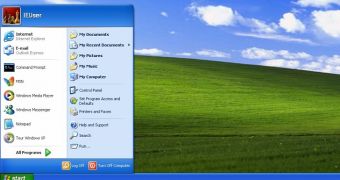Windows XP support is coming to an end in only 7 days, so the European Union has decided to issue a warning for all those still running the platform, emphasizing that upgrading to a newer platform is absolutely necessary if users who are trying to stay secure.
The European Cybercrime Centre (EC3) at Europol, which is an organization working under the close supervision on the European Union, explained in the advisory (PDF reader required) rolled out today that computers running Windows XP would become vulnerable to attacks, as no new security patches would be released after April 8.
“This doesn’t mean that computers running Windows XP will stop working. It means that there will be no more security updates, hotfixes, online technical content updates or any kind of technical support for the Windows XP SP3 operating system after this date. This concurs with the end of support for Office 2003. From a user’s perspective, and practically-speaking, this means that newly discovered vulnerabilities in Windows XP and Office 2003 will remain unpatched,” the notification reads.
At the same time, the EC3 has also issued some recommendations for those still running Windows XP, emphasizing that upgrading to a newer operating system is mandatory is order to be more secure. Switching to a Macintosh or Linux-based operating system should also be considered, it’s mentioned in the advisory.
What’s more, EC3 says, users who are indeed planning to upgrade should contact a technical expert that could provide assistance throughout the process and tell which applications could be used on the new operating system. Backing up your data is also critical, the EU cybersecurity body adds.
On the other hand, users who do not want to upgrade and instead plan to stick to Windows XP for a little longer should install all OS and Office 2003 updates, including the latest patches to be released by Microsoft on April 8.
An alternative browser with regular security updates is also a must-have, so consider dumping Internet Explorer as well. EC3 says that users should also remove any unnecessary software, install an up-to-date anti-virus and firewall solution and even disconnect the computer from the Internet if no longer use the connection.
Windows XP still has a 29 percent market share according to the latest figures provided earlier this month by third-party research firms, so it’s hard to believe that all users would complete the migration to a newer OS by April 8.

 14 DAY TRIAL //
14 DAY TRIAL //